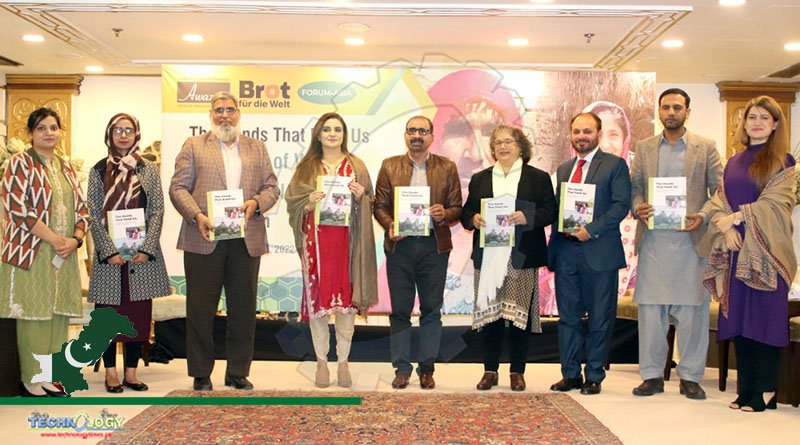Head of SDG Program stated that there is a need to empower women agricultural workers by providing them with the technical skills needed to connect with the market.

Rural women agricultural workers , working in agricultural fields are the largest contributors to the informal economy in Pakistan, but they are not acknowledged, counted, or protected. These women have the same rights as working women in cities, but in remote areas there is no recognition of their contribution or rights.
Kashmala Tariq, the Federal Ombudsperson for Protection Against Harassment, expressed these sentiments at the national launch of Awaz CDS Pakistan‘s study on women agricultural workers’ rights.
She also stated that there is a strong need to implement existing laws protecting the rights of women agricultural workers, as they frequently earn less than men and are denied basic rights and protection. She emphasized the importance of raising awareness among women agricultural workers (WAWs) through the media, as well as the role of local governments in addressing these issues.
In the aftermath of the COVID-19 pandemic, Awaz CDS Pakistan conducted a study titled “The Hands That Feed Us: Struggles of Women Agricultural Workers in Pakistan” in collaboration with Forum Asia and Bread for the World.
In his address, Chief Executive AwazCDS-Pakistan Zia-ur-Rehman stated that women agricultural workers (WAWs) frequently earn less than half the wages of men.
WAWs have historically faced malnutrition, discrimination, violence, and ill-treatment at the hands of their partners, including exploitation and sexual harassment. Most of them are married at a young age and forced to work as bonded labourers in fields for their in-law families.
Mr. Rehman stated that “there are several women’s empowerment studies, but limited research is available on the measurement of empowerment in the agricultural context,” emphasising the importance of this study.
As a result, it was decided to conduct a study to assess, identify, and articulate the contributing factors associated with the socioeconomic, legal, gender, and political empowerment of Women Agriculture Workers (WAW) in Pakistan’s Sindh and Punjab provinces.
The event included a panel discussion moderated by Zia-ur-Rehman and Maryam Amjad, Program Manager for AwazCDS-Pakistan, about the issues raised in the study. Among those who spoke were Dr. Shahida Rehmani, Chairperson of the Women Parliamentary Caucus; Ms. Shandana Gulzar, Ex-Convener of the Parliamentary Committee on Agriculture and Chairperson of the Common Wealth Women Parliamentary Forum; Ms. Mardiya Sultana, Member of the National Commission for the Status of Women; and Ms. Mahwish Afridi, Head of the SDG Program at the Hashoo Foundation.
Mr. Chaundry Imtiaz Ahmed, Director Agriculture Rahim Yar Khan, Ms. Sameena Nazeer, Executive Director PODA, and Mr. Aftab Alam Khan, Chief Executive of Resilient Future International, shed light on the state of rural women’s rights and how they are denied their fundamental rights.
The findings of the study suggested appropriate measures and recommendations to address identified policy and practise gaps. The findings and recommendations of the study also emphasise the WAWs’ rights to work, right to safe and secure working conditions, the right to assembly and association, the right to social security, and right to a healthy environment.
According to Shandana Gulzar, ex-convener of the Parliamentary Committee on Agriculture and chairperson of the Common Wealth Women Parliamentary Forum, WAW rights are about basic human rights, not social welfare. She shed light on the state of rural women’s rights and how they are denied their fundamental rights.
According to Mahwish Afridi, Head of SDG Program, Hashoo Foundation, there is a need to empower women agricultural workers by providing them with the technical skills needed to connect with the market. They should be aware of their rights as well as the opportunities to obtain and use microfinance.
Maryam Amjad, Program Manager at AwazCDS Pakistan, discussed the study’s methodology, findings, and recommendations. She advocated for the involvement of provincial ministries, district departments, the United Nations, and trade unions in ensuring WAW rights by strengthening their capacities and raising their awareness. Mr. Debendra Adhikari, Director of the South Asia Program at Forum Asia, thanked the participants for their significant contributions.